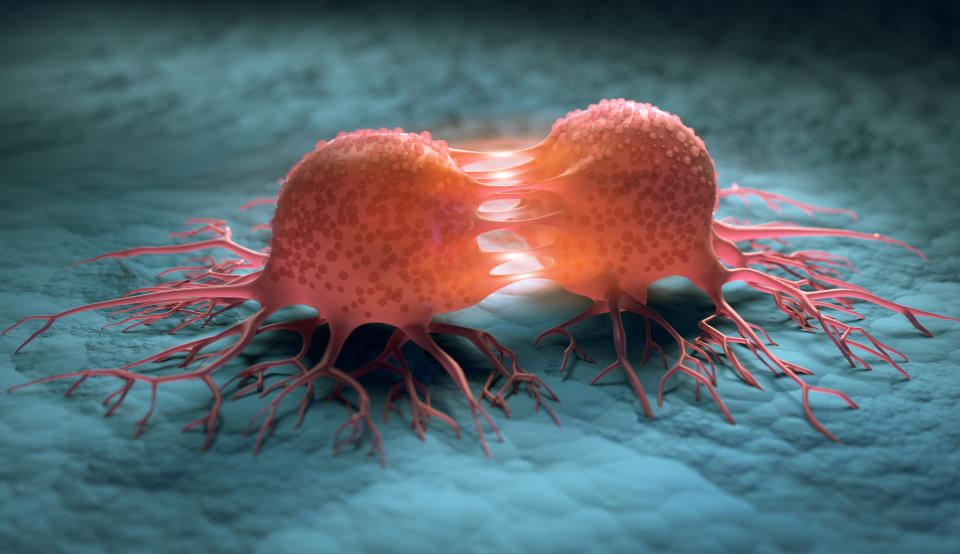Breast cancer cells could one day be manipulated to help treat tumours

Breast cancer cells could one day be manipulated to actually treat tumours, research suggests.
Scientists from John Hopkins University believe so-called natural killer (NK) immune cells can be turned from foe to friend in the fight against the disease.
Read more: BBC presenter with 'incurable cancer' is free of the disease
Breast cancer cells spread by invading surrounding healthy tissue until they reach the bloodstream, which enables them to form secondary tumours elsewhere.
NK cells normally destroy malignant tissue. The scientists discovered, however, they can be reprogrammed by breast cancer cells to facilitate their spread.
Preventing this may stop breast cancers from metastasising, a major cause of death among patients, according to the team.

“Breast cancer cells must overcome NK cell surveillance in order to form distant metastases,” said Professor Andrew Ewald.
“However, we do not fully understand how breast cancer cells escape NK cell-mediated immunosurveillance during their transit through the circulation and the initial seeding of distant organs.”
One in eight women in the UK and US will develop breast cancer at some point in their life.
The malignant cells are initially vulnerable to NK cells as they start spreading elsewhere, however, they quickly alter the behaviour of the immune response.
Read more: Shannen Doherty reveals she has stage four cancer, what does this mean?
The scientists modelled metastasis, the process of cancerous cells spreading from where they originally started, in the laboratory and a series of mice experiments.
Results, published in the Journal of Cell Biology, revealed NK cells lost their ability to restrict malignant growth after they encountered a tumour.
When exposed to tumours, NK cells undergo dramatic changes, including the turning on and off of thousands of genes, and the expression of different receptor proteins on their surface.
The scientists found the antibodies (immune-fighting proteins) that target two key receptors on the surface of NK cells, called TIGIT and KLRG1, prevented the immune response from helping breast cancer cells seed new tumours.
The US FDA-approved drugs decitabine and azacitidine had similar effects. This is thought to be down to them preventing large-scale changes in gene activity by inhibiting enzymes called DNA methyltransferases.
Read more: The cancers on the rise - and the decline - in the UK
The scientists found combining decitabine or azacitidine with anti-TIGIT or anti-KLRG1 antibodies was particularly effective at preventing NK cells from enhancing the spreading potential of breast tumours.
“The synergistic effects of DNA methyltransferase inhibitors with receptor-blocking antibodies suggests a viable clinical strategy to reactivate tumour-exposed NK cells to target and eliminate breast cancer metastases,” said lead author Dr Isaac Chan.
Although early days, the scientists are optimistic their discovery could one day aid breast cancer treatment.
“Combined with our observation that NK cells are abundant early responders to disseminated breast cancer cells, our data provide preclinical rationale for the concept of NK cell-directed immunotherapies in the adjuvant setting for breast cancer patients with high risk of metastatic recurrence,” added Prof Ewald.



